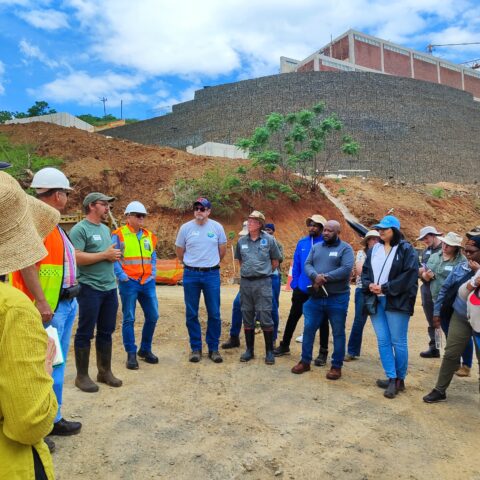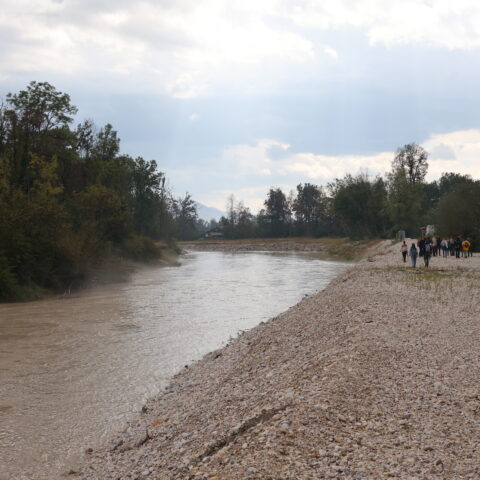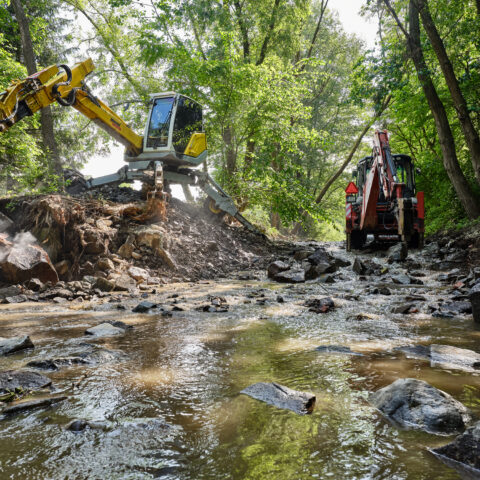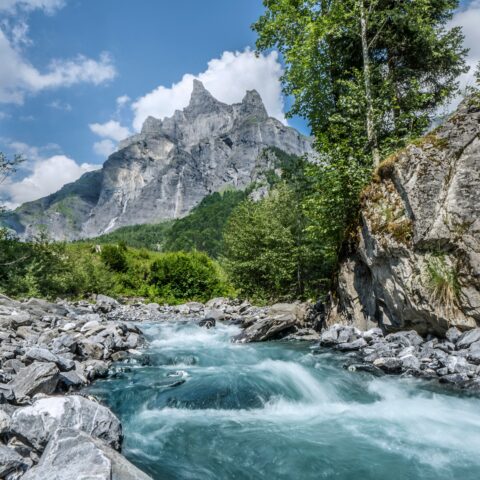
From Barriers to Bridges: Paving the way for river restoration in the Danube River Basin
10 October 2024On November 6th and 7th, the World Fish Migration Foundation, in partnership with the Institute of Natural Resources, hosted its first workshop on dam management and river connectivity in Durban, South Africa. The event brought together over 50 participants, including representatives from government agencies, environmental NGOs, research institutions, and international experts, all dedicated to advancing river restoration and sustainable dam management practices. The two-day program combined a field visit with a day of expert presentations and collaborative discussions focused on restoring river connectivity and sustainable dam management across South Africa.
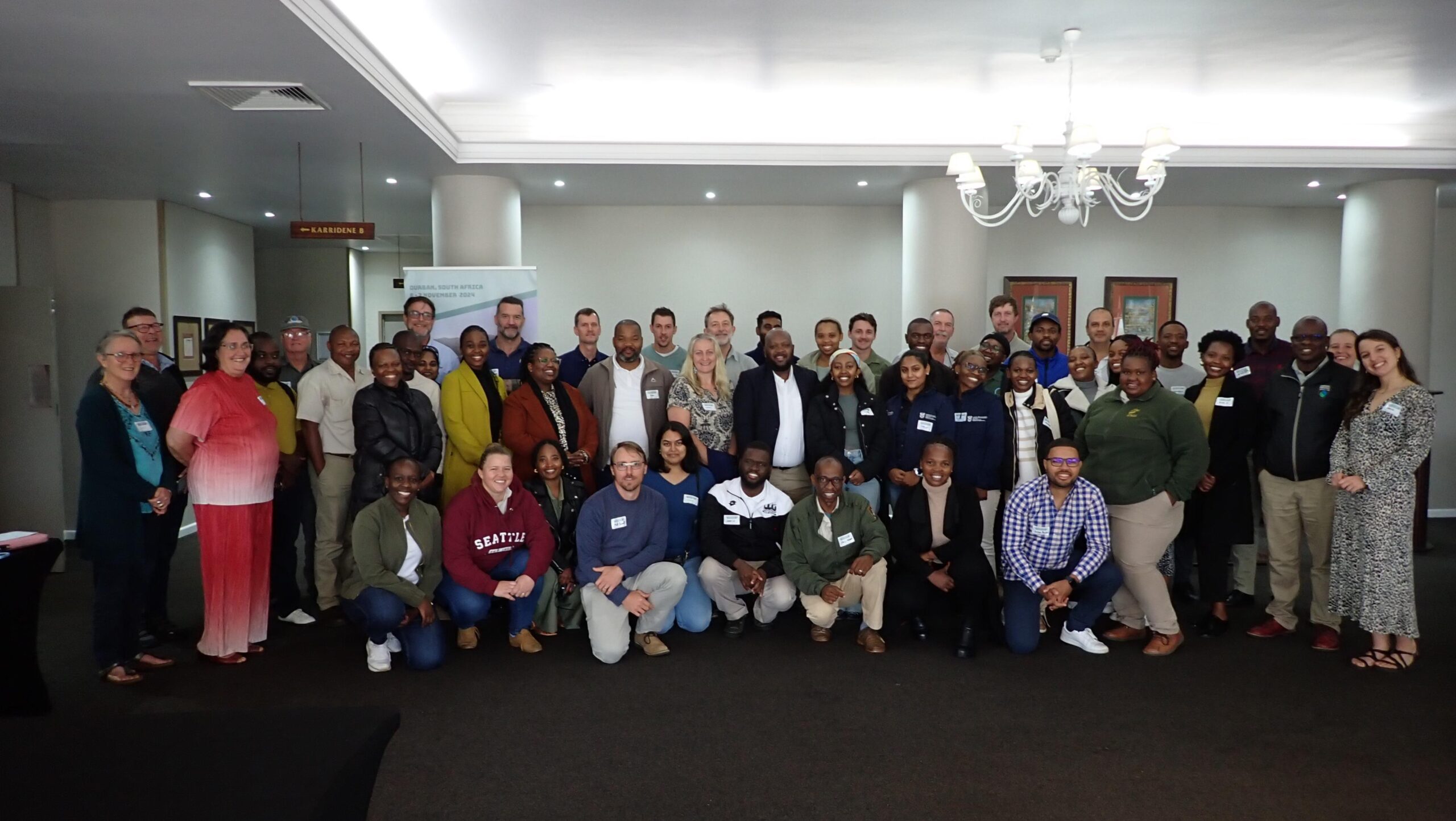
Participants at the Workshop ©INR
The workshop’s first day began with a field visit to the lower uMkhomazi River, where participants had the chance to witness the ongoing upgrade of the Goodenough Weir. Experts from GIBB introduced the group to a key aspect of this project: the construction of a fish passage, designed to allow native fish species to migrate upstream. A short distance upstream, the U1H006 Department of Water and Sanitation Weir continues to impair the river due to its obsolete status and lack of connectivity measures, which affects the natural flow and habitat continuity. This visit offered attendees a direct look at the challenges of balancing necessary infrastructure with ecological aspects, sparking a vibrant exchange of ideas among the participants.
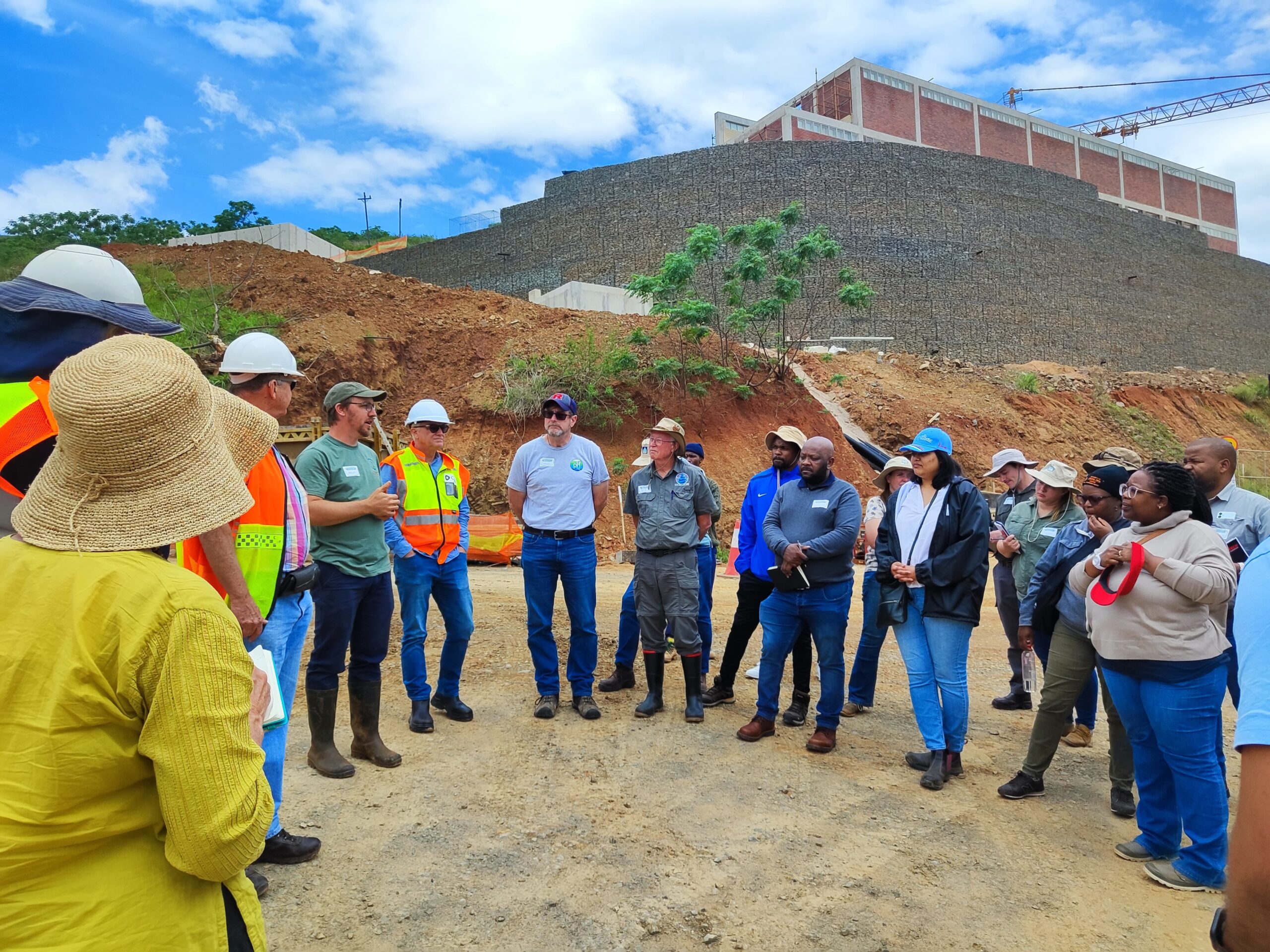
Participants at the uMkhomazi River weir fish passage construction ©WFMF
The second day began with insightful presentations from local and international experts on dam and catchment management, sediment management, and ecological restoration. Navashni Govender from the South African National Parks (SANParks) introduced pioneering efforts in Kruger National Park, where South Africa has become the first African country to remove dams for ecological purposes , restoring river flow and enhancing biodiversity.
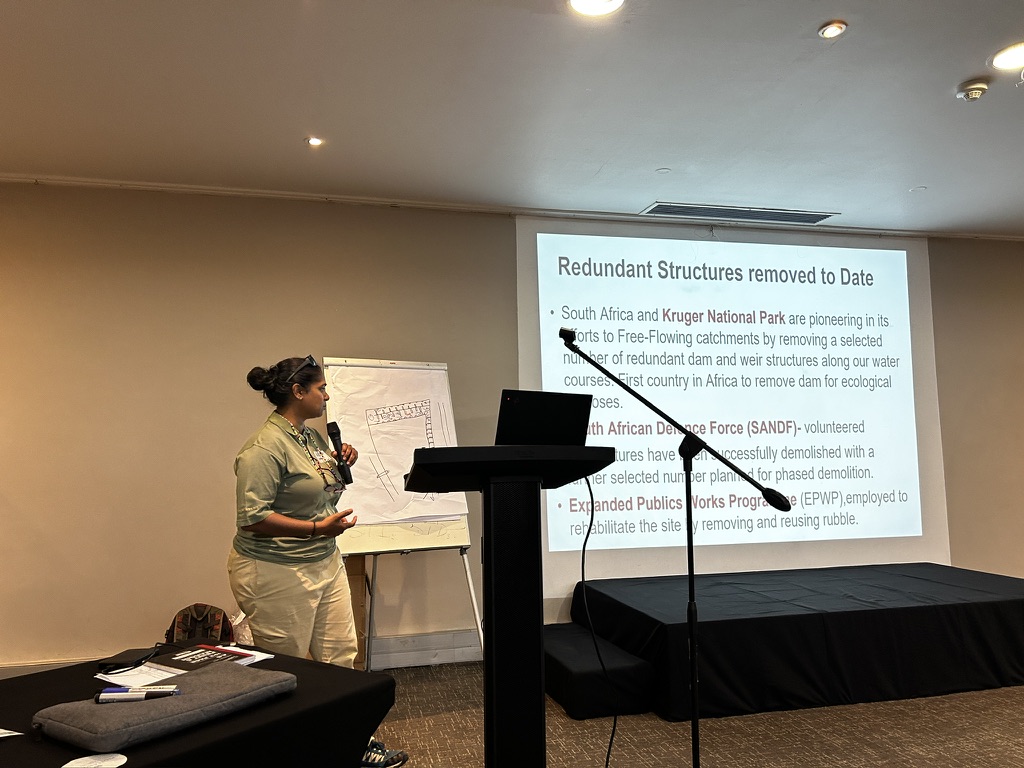
Navashni Govender from SANParks ©WFMF
Following this, two speakers from water management agencies shared their insights on effective management approaches. Nkosinjani Mkhize from the Pongola-Umzimkhulu Catchment Management Agency, presented new strategies in national catchment and water management, focused on balancing social and ecological needs. Futhi Vilakazi of uMngeni-uThukela Water then provided further local insight, discussing the challenges water utilities face in securing water while addressing ecosystem needs, including catchment intervention assessments.
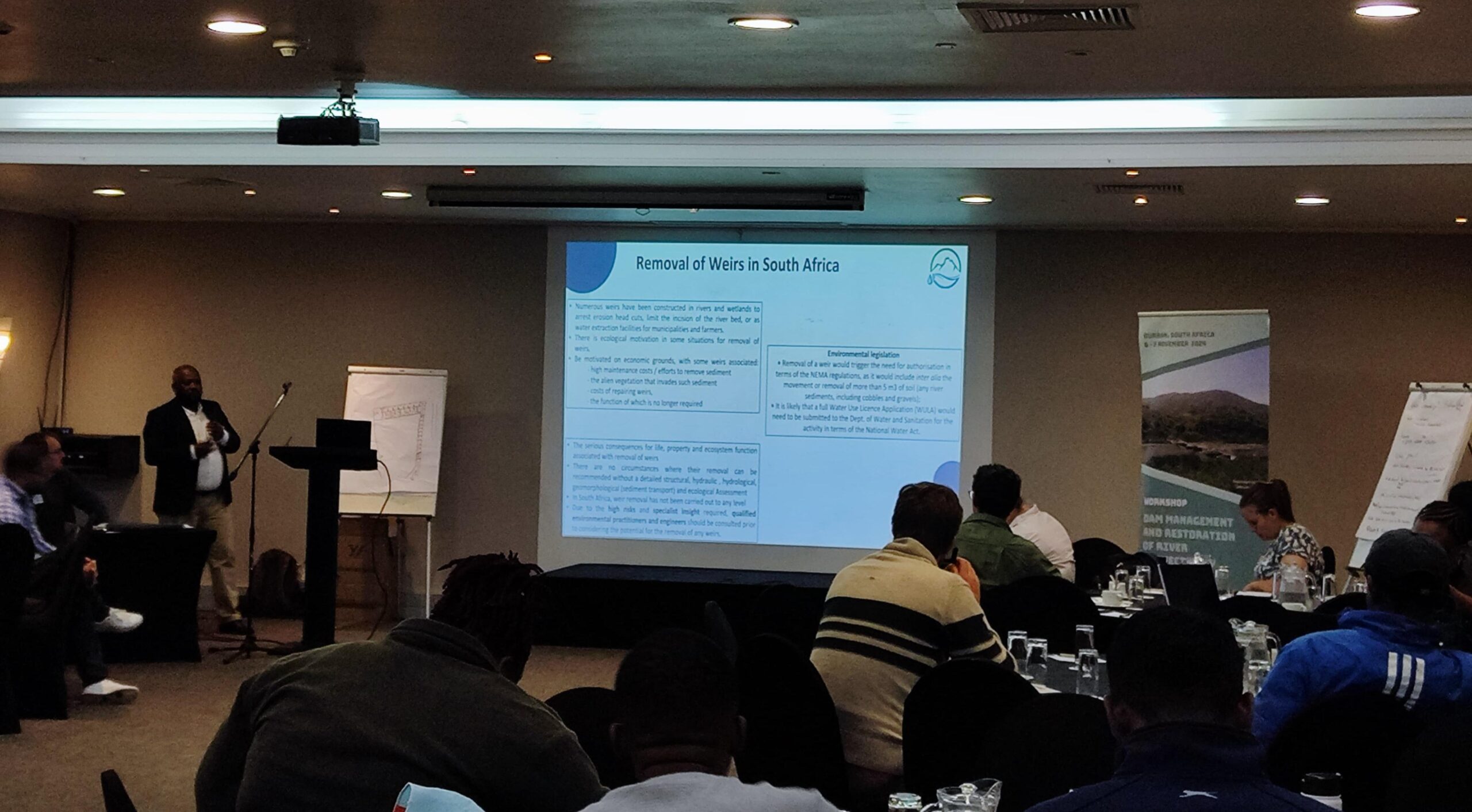
Nkosinjani Mkhize from Pongola-Umzimkhulu Catchment Management Agency presenting ©WFMF
An international viewpoint was provided by Geoffrey Goll from Princeton Hydro in the USA, on sediment management before and after barrier removal, emphasizing the crucial role sediment plays in maintaining river health. Hamish Moir from Scotland’s CBEC Eco-Engineering highlighted European case studies on nature-based river reconnection, demonstrating how selectively removing obsolete barriers has improved ecosystem dynamics and flood risk management. Concluding the morning session, Andrew Blackmore from KZN Wildlife explored the complex regulatory landscape around dam removal in South Africa, shedding light on the intricate legal frameworks governing environmental and barrier management.
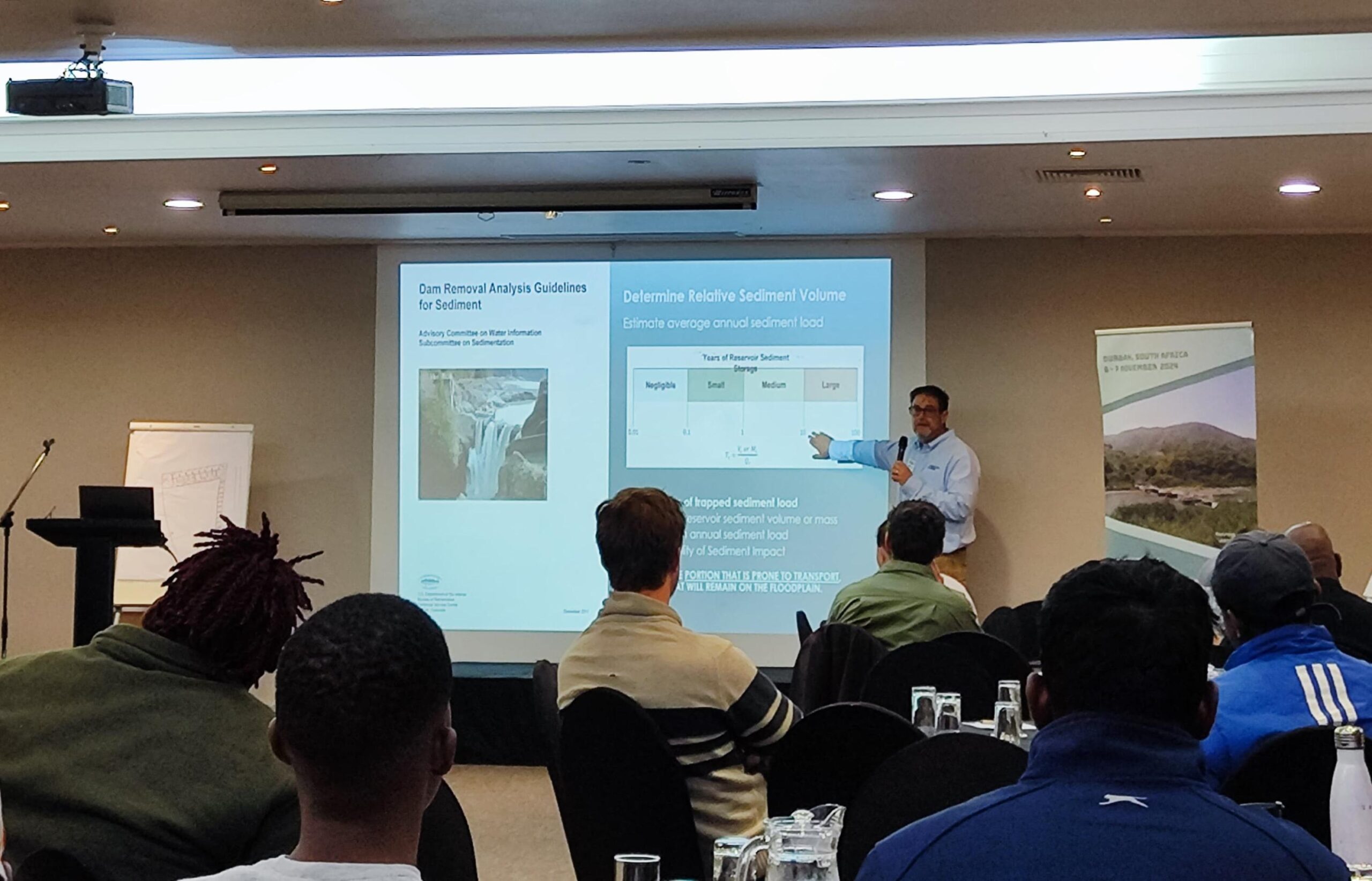
Geoffrey Goll from PH presenting ©WFMF
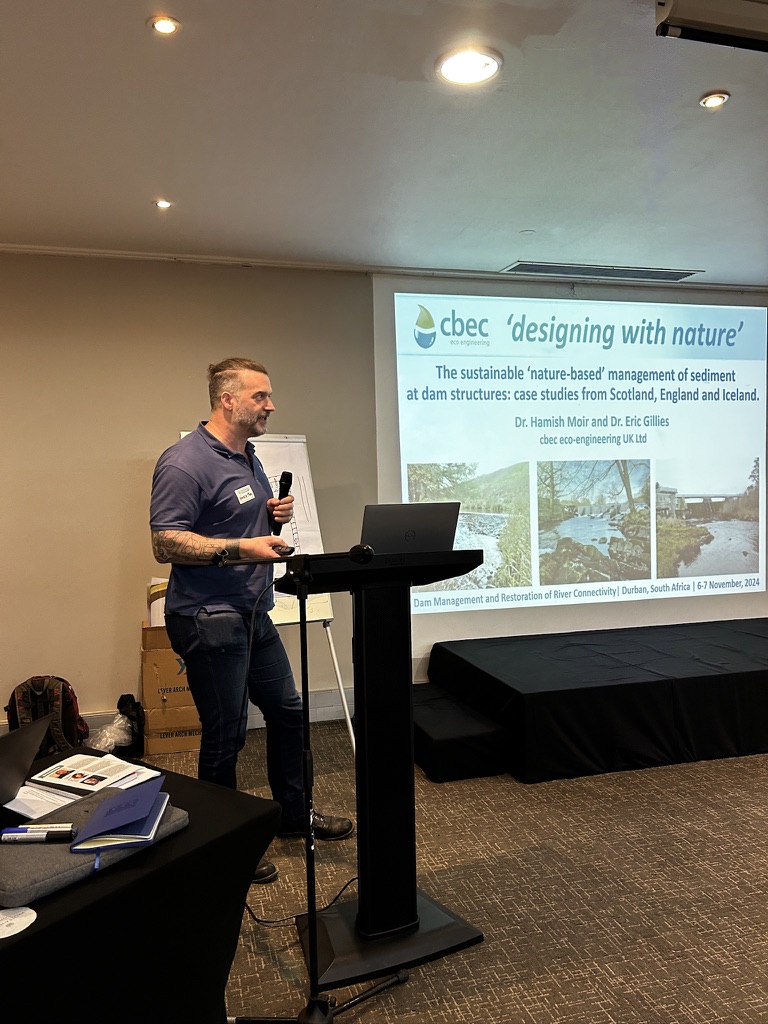
Hamish Moir from CBEC presenting ©WFMF
The afternoon featured an interactive "World Café" session, where participants moved between five thematic stations: stakeholder involvement, governance mechanisms, water scarcity and biodiversity, socio-economic and ecological impacts, and funding models. These discussions emphasized the importance of a cohesive approach to dam/catchment management, integrating both ecological and community perspectives to develop effective monitoring measures for long-term solutions. Two case scenarios were explored to assess the current pressures and stressors on rivers and discuss how these could be addressed in dam removal or river restoration projects under ideal conditions.
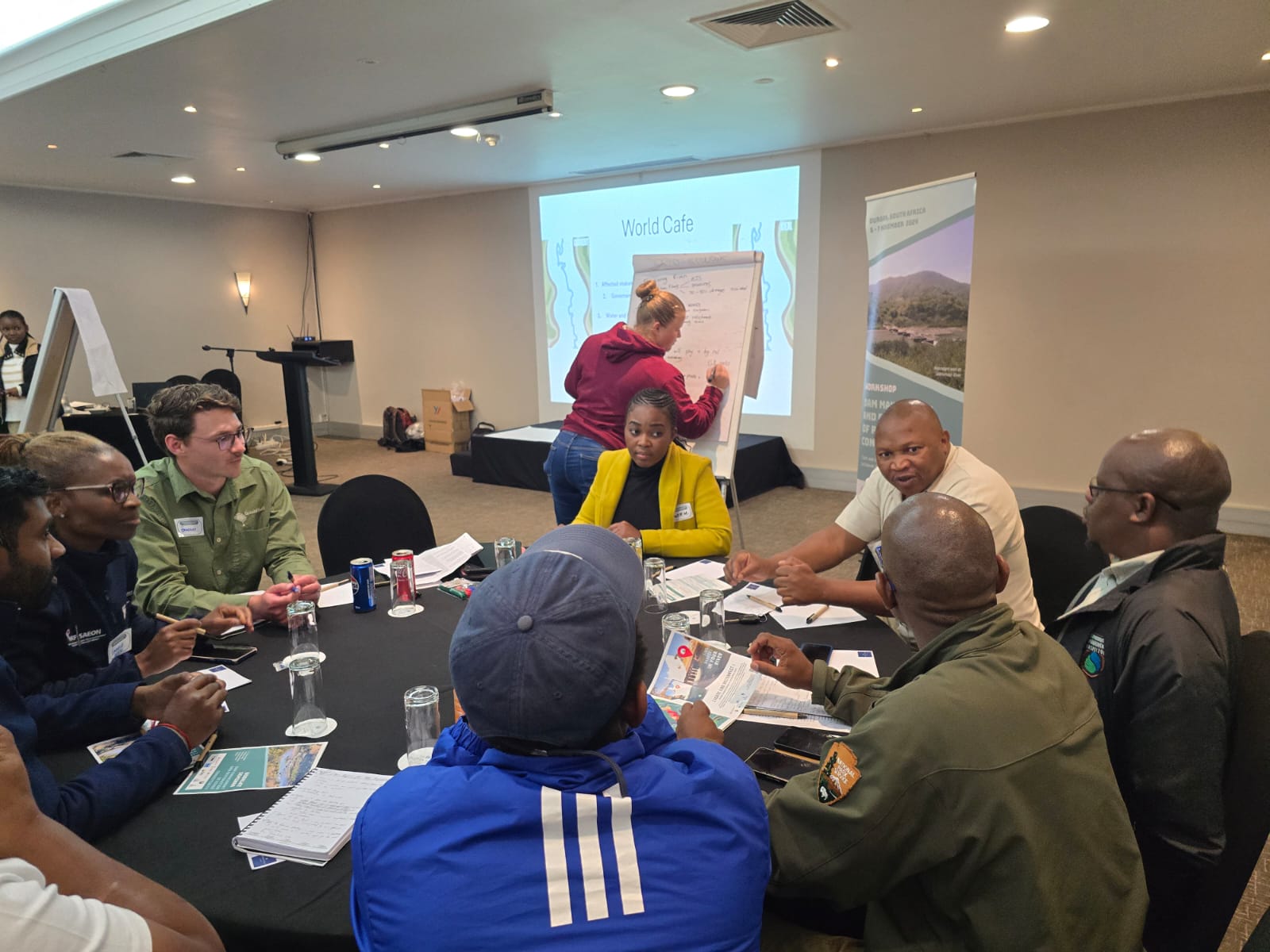
World Café session ©Lee D'Eathe
The event highlighted the pressing need for integrated governance structures that support sustainable dam management while also addressing social necessities and ecological balance. Attendees gained deeper understanding of the potential ecological and social benefits of barrier removal, such as improved water quality, enhanced biodiversity, risks reduction, and increased habitat connectivity. The discussions also emphasized the importance of raising awareness and communicating these projects effectively, and the need to secure diverse funding sources to support the integrated planning and execution of catchment management and restoration initiatives.

World Café session ©WFMF
This event marked a meaningful step toward a shared vision for South Africa’s river systems, opening doors for continued partnerships and innovative projects aimed at reconnecting rivers. The positive momentum generated over these two days reflects a growing recognition of the urgent need to protect and revitalize the country’s aquatic ecosystems.
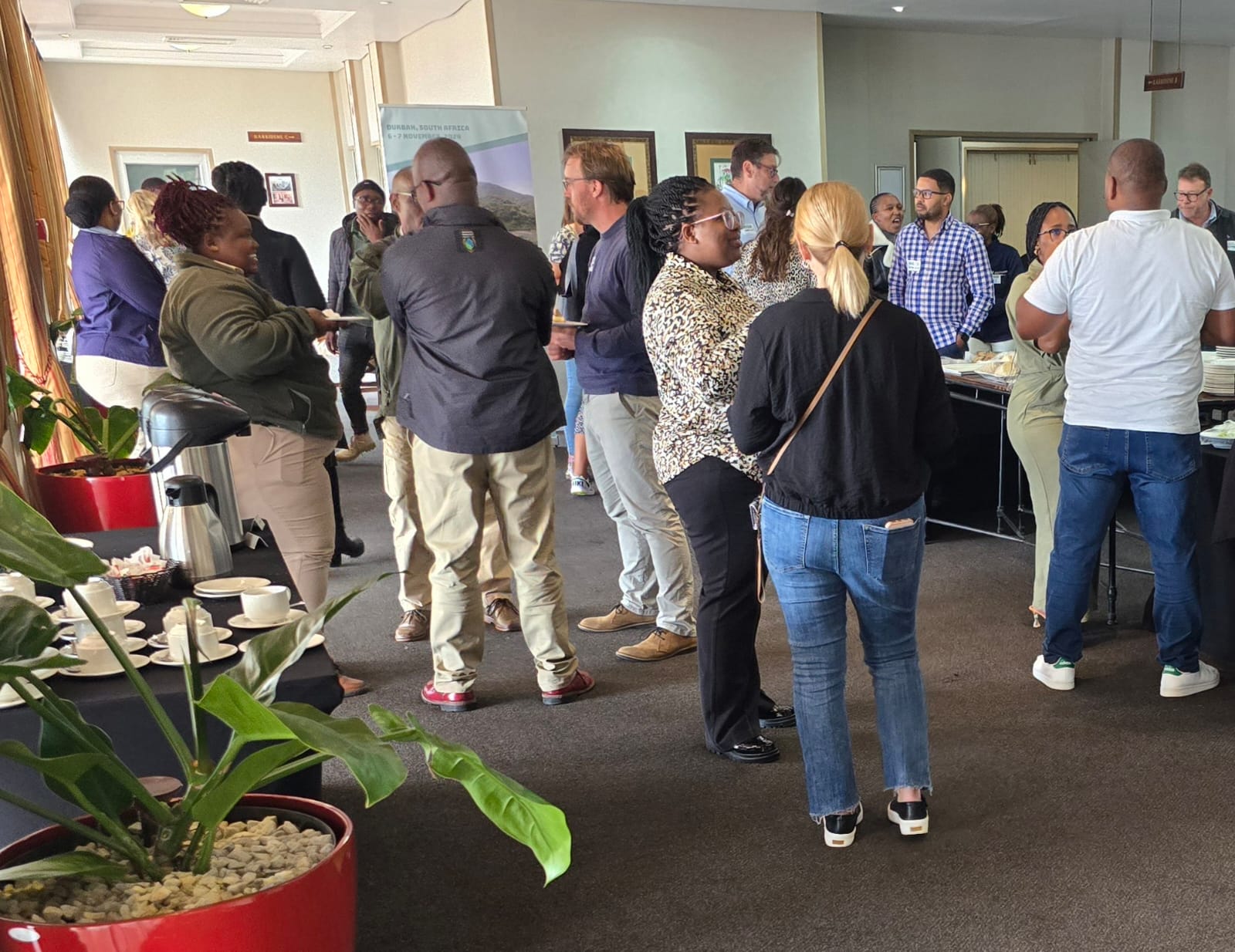
©Lee D'Eathe

